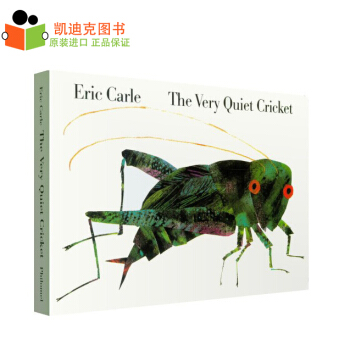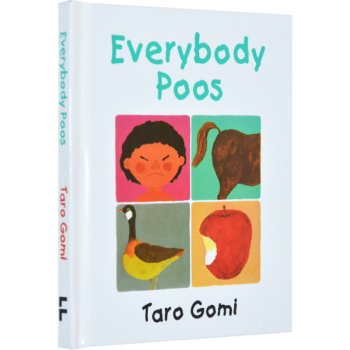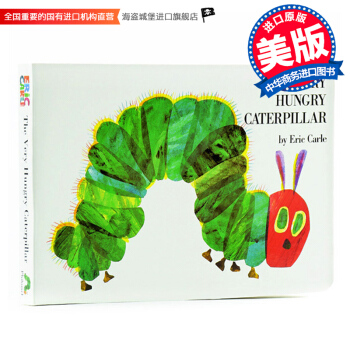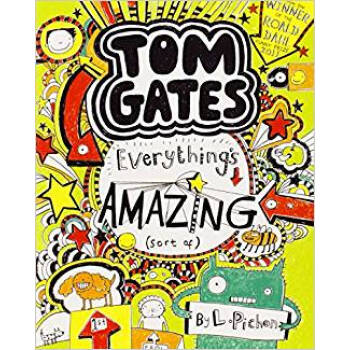![The Color Purple 紫色 英文原版 [平装]](https://pic.windowsfront.com/19233428/rBEQWFELieMIAAAAAAJnc-snwvUAAAe2AIOI5AAAmeL527.jpg)

具体描述
内容简介
Celie is a poor black woman whose letters tell the story of 20 years of her life, beginning at age 14 when she is being abused and raped by her father and attempting to protect her sister from the same fate, and continuing over the course of her marriage to "Mister," a brutal man who terrorizes her. Celie eventually learns that her abusive husband has been keeping her sister's letters from her and the rage she feels, combined with an example of love and independence provided by her close friend Shug, pushes her finally toward an awakening of her creative and loving self.全书由九十四封书信构成,分别是女主人公西莉亚写给上帝,妹妹内蒂以及爱慕的女性黑人布鲁斯歌手萨格的书信,信中所提及的故事,构成了西莉亚整个关于童年的回忆以及现今生活的画面。小说以书信体格式来记录故事是一个非常独特的方法,这也形成了本书独特的魅力,另外书信中姓名的留白(即所有男性的名字作者都用“——”来表示),也带给读者非常不一样的感受。
《紫色》的情节并不复杂,故事的年代大约在20世纪初到第二次世界大战前夕,背景是美国南方佐治亚乡村。十四岁的黑人女孩西丽被后父奸污,生下两个孩子。多病的母亲不了解真相活活气死了。她的孩子被后父抢走失踪,她本人又被迫嫁给已有四个孩子的鳏夫。丈夫另有所爱,对她百般虐待,而她受旧思想旧习俗的影响只是自叹命苦,从不反抗,只在给上帝写的信里倾诉内心的痛苦。她对丈夫毫无感情,甚至不愿意叫他的名字,只称他为某某先生。善良的西丽发现后父和丈夫都对妹妹耐蒂不怀好心,便帮助她离家出走。另一方面,她任劳任怨地把丈夫前妻的儿女抚养成人。大儿子哈波结婚以后,想像父亲那样使唤打骂老婆,但儿媳妇索菲亚生性倔强,不肯对丈夫俯首贴耳唯命是从,在生了好几个孩子以后还是离开了哈波。西丽丈夫以前的情人,歌唱家莎格患重病流落街头。某某先生把她接到家里,她在西丽的精心护理下恢复了健康,两人成了知心朋友。莎格开导西丽要充分认识自己的聪明才智,要跟大男子主义思想作斗争,主动争取女人应有的权利。莎格的启发开阔了西丽的眼界,她开始用新的眼光观察世界、考虑问题。后来,莎格发现西丽的丈夫一直把耐蒂从非洲写来的信件秘密收藏起来不让她知道。西丽在愤怒之余决定脱离某某先生,跟莎格去孟菲斯。她走出家庭学习缝纫,成为手艺精湛的裁缝,开起裁缝铺,过上了独立自主的生活。某某先生经过痛苦的思想斗争,认识到过去大男子主义思想的错误,向西丽作了诚恳的检讨,获得了西丽的原谅。他们不再是夫妻,但成了知心朋友。西丽的妹妹耐蒂出走后到黑人牧师塞缪尔家干活,又随他们去非洲做传教士。她发现牧师的一儿一女就是西丽失去的孩子。塞缪尔一家在非洲生活得很艰难,他妻子染上非洲疟疾不治身亡。英国殖民者为种植橡胶肆意破坏当地奥林卡人民的土地和村落。塞缪尔和耐蒂赶到英国向教会求救,但遭到冷落和侮辱。他们返回非洲时当地人民对他们大为失望,纷纷投奔住在森林深处反抗白人的母布雷人。耐蒂此时已经跟塞缪尔结成夫妻,决心带着儿子亚当、女儿奥莉维亚及儿媳妇塔希回国。小说结尾处,西丽跟妹妹和儿子、女儿重新团聚,过上快乐的生活。
作者简介
Alice Walker won the Pulitzer prize and the American Book Award for The Color Purple. She is the author of many bestselling novels, essays and collections of poetry.艾丽丝·沃克,美籍黑人,曾受邀拜访马丁·路德·金家中,并参与了《我有一个梦想》演讲,1972年至威尔斯利大学任教,开设了“妇女文学”课程,是美国大学中最早开设的女性研究课程之一。后受邀出任《女性》杂志编辑,并在刊文中首次提出“Womanist”(女权主义)一说。
精彩书评
"Intense emotional impact . . . Indelibly affecting . . . Alice Walker is a lavishly gifted writer."—The New York Times Book Review
"Places Walker in the company of Faulkner."
—The Nation
"Superb . . . A work to stand beside literature of any time and place."
—San Francisco Chronicle
"The Color Purple is an American novel of permanent importance."
—Newsweek
"Marvelous characters . . . A story of revelation . . . One of the great books of our time."
—Essence
精彩书摘
You better not never tell nobody but God. It'd kill your mammy.Dear God,
I am fourteen years old. I am I have always been a good
girl. Maybe you can give me a sign letting me know what
is happening to me.
Last spring after little Lucious come I heard them fussing. He was pulling on her arm. She say It too soon, Fonso, I ain't well. Finally he leave her alone. A week go by, he pulling on her arm again. She say Naw, I ain't gonna. Can't you see I'm already half dead, an all of these chilren.
She went to visit her sister doctor over Macon. Left me to see after the others. He never had a kine word to say to me. Just say You gonna do what your mammy wouldn't. First he put his thing up gainst my hip and sort of wiggle it around. Then he grab hold my titties. Then he push his thing inside my pussy. When that hurt, I cry. He start to choke me, saying You better shut up and git used to it.
But I don't never git used to it. And now I feels sick every time I be the one to cook. My mama she fuss at me an look at me. She happy, cause he good to her now. But too sick to last long.
Dear God,
Mr. ______ finally come right out an ast for Nettie hand in marriage. But He won't let her go. He say she too young, no experience. Say Mr. ______ got too many children already. Plus What about the scandal his wife cause when somebody kill her? And what about all this stuff he hear bout Shug Avery? What bout that?
I ast our new mammy bout Shug Avery. What it is? I ast. She don't know but she say she gon fine out.
She do more then that. She git a picture. The first one
of a real person I ever seen. She say Mr. ______ was taking somethin out his billfold to show Pa an it fell out an slid under the table. Shug Avery was a woman. The most beautiful woman I ever saw. She more pretty then my mama. She bout ten thousand times more prettier then me. I see her there in furs. Her face rouge. Her hair like somethin tail. She grinning with her foot up on somebody motocar. Her eyes serious tho. Sad some.
I ast her to give me the picture. An all night long I stare at it. An now when I dream, I dream of Shug Avery. She be dress to kill, whirling and laughing.
Dear God,
I ast him to take me instead of Nettie while our new mammy sick. But he just ast me what I'm talking bout. I tell him I can fix myself up for him. I duck into my room and come out wearing horsehair, feathers, and a pair of our new mammy high heel shoes. He beat me for dressing trampy but he do it to me anyway.
Mr. ______ come that evening. I'm in the bed crying. Nettie she finally see the light of day, clear. Our new mammy she see it too. She in her room crying. Nettie tend to first one, then the other. She so scared she go out doors and vomit. But not out front where the two mens is.
Mr. ______ say, Well Sir, I sure hope you done change your mind.
He say, Naw, Can't say I is.
Mr. ______ say, Well, you know, my poor little ones sure could use a mother.
Well, He say, real slow, I can't let you have Nettie. She too young. Don't know nothing but what you tell her. Sides, I want her to git some more schooling. Make a schoolteacher out of her. But I can let you have Celie. She the oldest anyway. She ought to marry first. She ain't fresh tho, but I spect you know that. She spoiled. Twice. But you don't need a fresh woman no how. I got a fresh one in there myself and she sick all the time. He spit, over the railing. The children git on her nerve, she not much of a cook. And she big already.
Mr. ______ he don't say nothing. I stop crying I'm so surprise.
She ugly. He say. But she ain't no stranger to hard work. And she clean. And God done fixed her. You can do everything just like you want to and she ain't gonna make you feed it or clothe it.
Mr. ______ still don't say nothing. I take out the picture of Shug Avery. I look into her eyes. Her eyes say Yeah, it bees that way sometime.
Fact is, he say, I got to git rid of her. She too old to be living here at home. And she a bad influence on my other girls. She'd come with her own linen. She can take that cow she raise down there back of the crib. But Nettie you flat out can't have. Not now. Not never.
Mr. ______ finally speak. Clearing his throat. I ain't never really look at that one, he say.
Well, next time you come you can look at her. She ugly. Don't even look like she kin to Nettie. But she'll make the better wife. She ain't smart either, and I'll just be fair, you have to watch her or she'll give away everything you own. But she can work like a man.
Mr. ______ say How old she is?
He say, She near twenty. And another thing-She tell lies.
前言/序言
用户评价
拿到这本《紫色》(The Color Purple)的英文原版平装书,我内心有种说不出的激动。我一直对这本书的故事非常好奇,听说过它的影响力,也知道它触及了许多敏感而又深刻的社会议题。我喜欢这种带着历史厚重感,又充满人文关怀的作品。这本书的封面设计,那抹低调却又充满力量的紫色,仿佛在诉说着一个关于隐忍、关于抗争,又关于最终绽放的故事。我还没开始阅读,但仅仅是握着这本书,就有一种踏实感。我期待着在接下来的日子里,能够与这本书一同经历一段旅程,去感受主人公们所经历的那些不易,去体会她们在逆境中如何寻找希望,如何捍卫自己的尊严。我更想通过这本书,去理解那些在历史长河中被忽视的声音,去感受那些普通人身上所闪耀的伟大光芒。这本书对我来说,不仅仅是一次阅读,更是一次与历史对话,一次与人性的深度交流。我期待着它能够带给我震撼,带给我思考,也带给我前行的力量。
评分《紫色》(The Color Purple)这本书,光是名字就充满了诗意和力量。我选择的是英文原版平装,因为我想最直接地感受作者的笔触,最真实地理解故事的精髓。这本书的封面,那种深邃的紫色,在我看来,不仅仅是一种颜色,更是一种情绪的象征,它可能代表着压抑,也可能代表着某种隐藏的能量,或者是一种不被理解的美丽。我还没有开始阅读,但我已经对这个故事充满了期待。我喜欢那些能够带人穿越时空,去感受不同人生境遇的作品,而《紫色》在我看来,无疑就是这样一本能够触动灵魂的作品。我期待着在阅读的过程中,能够感受到主人公们的喜怒哀乐,去体会她们在那个特定时代背景下所面临的挑战和困境。我更期待着,在她们的故事中,能够看到人性的坚韧和光辉,看到希望如何冲破黑暗,看到个体如何寻找到属于自己的力量。这本书对我而言,是一次对过往的探寻,也是一次对人性的深刻解读,我期待它能给我带来难忘的阅读体验。
评分说实话,我一直对那些能够触及人心底、引发强烈共鸣的作品情有独钟,而《紫色》这本书,从它被无数人推崇和喜爱这一点来看,无疑具备了这样的潜质。我拿到的是英文原版平装,这对我来说也是一个挑战,但也是一种回归,我想亲身体验一下原汁原味的故事,感受作者最直接的表达。这本书的封面设计,那抹浓烈的紫色,就像是某种情绪的爆发,又像是某种深邃的思考,它不张扬,却又极具穿透力。我甚至在想,这紫色究竟象征着什么?是悲伤?是希望?还是某种复杂的情感交织?我还没有答案,但这种未解的谜团,反而激起了我更强烈的阅读欲望。我喜欢收集那些有故事的书,而《紫色》在我看来,绝对是一本值得珍藏的书。它的文字,它的故事,它的思想,都将成为我人生旅途中宝贵的财富。我迫不及待地想要翻开它,去感受那个年代的女性,她们所经历的磨难,所迸发出的坚韧,以及她们在绝望中寻找希望的闪光点。我期待它能够带给我一次深刻的思想启迪,让我重新审视生活中的许多问题,也让我对人性有更深的理解。
评分每次在书店里看到《紫色》(The Color Purple)这本书,我总会停下脚步,被它独特的封面所吸引。那抹深邃的紫色,总是能引起我内心的涟漪。我一直在思考,为什么作者会选择“紫色”作为书名?是暗示着一种不被主流社会所接纳的色彩,还是一种象征着某种独特、神秘,甚至带有禁忌的意义?我还没来得及去探究书中的内容,但光是这个名字,就已经在我脑海中勾勒出了无数的可能性。我更倾向于选择平装版的英文原著,因为我相信,最纯粹的语言才能最真实地传递作者的情感和思想。我希望能够沉浸在作者的文字世界里,去感受那种最直接的冲击。这本书对我来说,更像是一次关于自我发现的旅程,我期待着在书中找到那些能够与我产生共鸣的灵魂,也期待着在那些经历中,看到人性的光辉和韧性。我喜欢那些能够让我反复品味、在不同的心境下都能读出不同味道的作品,《紫色》在我看来,就有这样的潜力。我期待它带来的不仅是阅读的乐趣,更是一次深刻的心灵洗礼。
评分我最近拿到一本《紫色》(The Color Purple)的平装版,光是拿到这本书,就能感受到它沉甸甸的分量,不只是纸张厚度,更是它背后承载的故事。翻开书页,纸张的触感和油墨的淡淡香味扑面而来,这是一种久违的阅读体验,不同于冰冷的电子屏幕,指尖划过书页的感觉,总能让人心安。我还没有开始读,但光是封面设计,就带有一种力量感,那种深邃而又充满生命力的紫色,仿佛在暗示着书中那些不被驯服的灵魂和经历。我一直对这部作品充满好奇,它获奖无数,被改编成电影,口碑极佳,自然而然地成为了我书单上必不可少的一本。我甚至可以想象,当我在夜深人静的时候,捧着这本书,沉浸在那个年代、那个环境中,感受主人公的喜怒哀乐,就像经历一场心灵的洗礼。这本书对我来说,不仅仅是一本读物,更像是一扇窗户,让我得以窥见那些隐藏在社会角落里,却又如此真实,如此动人的生命故事。我期待着它带来的震撼,期待着它能够触动我内心深处的情感,让我对生活有更深的理解和感悟。这本书的出现,就像是一抹鲜亮的色彩,点亮了我最近有些沉寂的心情,让我在等待阅读的过程中,就已经充满了期待和一丝丝的忐忑,毕竟,好的故事总是伴随着深刻的思考。
评分京东买书还是不错的,非常方便
评分帮同事买的 挺好 emma推荐的书
评分挺好,书还没有看完,感觉不错
评分刚收到商品,带塑封还没拆开看
评分很喜欢,他的每一本书几本上都有,这本很不错,
评分刚看了几页,很新颖,很期待本次阅读之旅!
评分书很小很小,真心挺贵的。物流特别快,好评!
评分意义很深的一本书,值得一看
评分给女朋友买的 应该不错
相关图书
本站所有内容均为互联网搜索引擎提供的公开搜索信息,本站不存储任何数据与内容,任何内容与数据均与本站无关,如有需要请联系相关搜索引擎包括但不限于百度,google,bing,sogou 等
© 2026 book.coffeedeals.club All Rights Reserved. 静流书站 版权所有

![The Wolf of Wall Street 华尔街之狼 英文原版 [平装] pdf epub mobi 电子书 下载](https://pic.windowsfront.com/19287035/rBEQWVNm8msIAAAAAAh2iEeLOnsAAF-EwFJITYACHag597.jpg)







![Flow当下的幸福 英文原版 [平装] pdf epub mobi 电子书 下载](https://pic.windowsfront.com/19004332/fe1c0c1f-47e0-4938-89cc-662152a90ff4.jpg)
![P.J. Funnybunny Camps out 进阶式阅读丛书: 搞怪小兔的野营记 [平装] [4岁及以上] pdf epub mobi 电子书 下载](https://pic.windowsfront.com/19016169/5fd8f189-38c8-4c2a-9b21-8cd12afc0e9b.jpg)
![Andrew Lost #15: In the Jungle [平装] [6-9岁] pdf epub mobi 电子书 下载](https://pic.windowsfront.com/19032268/efa857de-89c6-46fd-ac77-0ef9b1157a2a.jpg)
![Ready, Set, Read!: The Beginning Reader's Treasury [精装] [3岁及以上] pdf epub mobi 电子书 下载](https://pic.windowsfront.com/19034421/42a60ca2-088c-479d-8846-9e4bb92859c2.jpg)
![Who Took the Farmer's Hat? [平装] [4岁及以上] pdf epub mobi 电子书 下载](https://pic.windowsfront.com/19093921/rBEhWVKMjAsIAAAAAAavMlFMnp8AAFu4wK97wgABq9K891.jpg)
![The Little Engine That Could Helps Out [平装] [3岁及以上] pdf epub mobi 电子书 下载](https://pic.windowsfront.com/19138171/58dc6cf5N79e5fd5a.jpg)
![Spot Night-Night, Spot 英文原版 [平装] [3岁及以上] pdf epub mobi 电子书 下载](https://pic.windowsfront.com/19142280/d3fbde66-9a63-4008-88f0-2af6be392ce7.jpg)
![Lord of the Flies[蝇王] 英文原版 [平装] pdf epub mobi 电子书 下载](https://pic.windowsfront.com/19280097/rBEQYVGulPQIAAAAAASnjwUeBJkAACwVgEeiVEABKen195.jpg)
![Thea Stilton and the Dancing Shadows老鼠记者西娅系列 14:西娅与舞动的影子 英文原版 [平装] [7-10岁] pdf epub mobi 电子书 下载](https://pic.windowsfront.com/19280166/rBEQWVFnoaQIAAAAAADgT2sA9nUAAD91gGMn0cAAOBn799.jpg)
![Uh-oh, David! Sticker Book [平装] [3-8岁] pdf epub mobi 电子书 下载](https://pic.windowsfront.com/19280196/rBEQWFFnoZEIAAAAAAEU9UGbnHwAAD91gHQnBsAARUN260.jpg)
![Pete the Cat: The First Thanksgiving 皮特猫:第一个感恩节 [平装] [4-8岁] pdf epub mobi 电子书 下载](https://pic.windowsfront.com/19457422/550bf184N82435bd2.jpg)
![The Disney Book 英文原版 [平装] pdf epub mobi 电子书 下载](https://pic.windowsfront.com/19550284/56d94a94N0a5c9ff7.jpg)